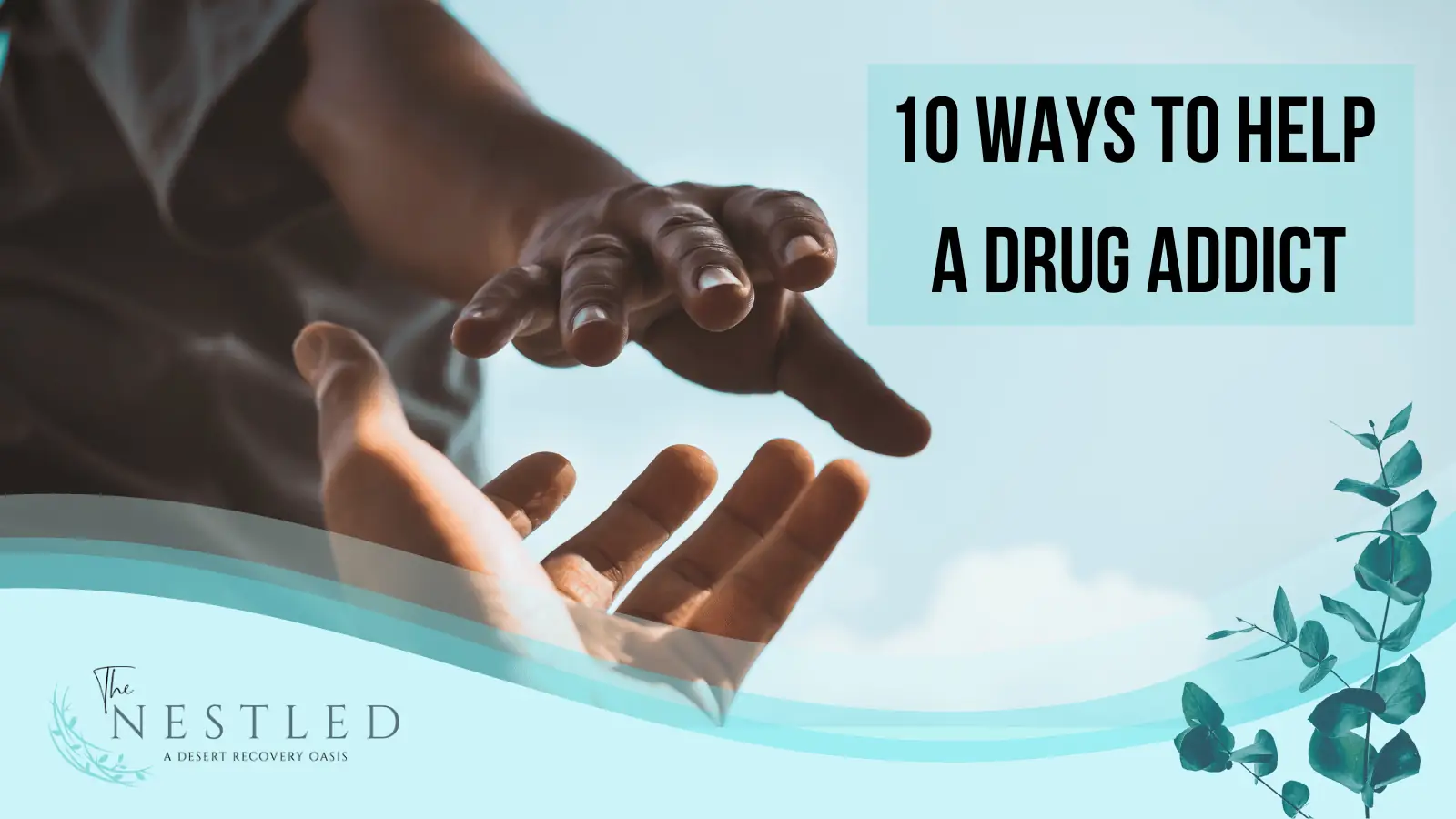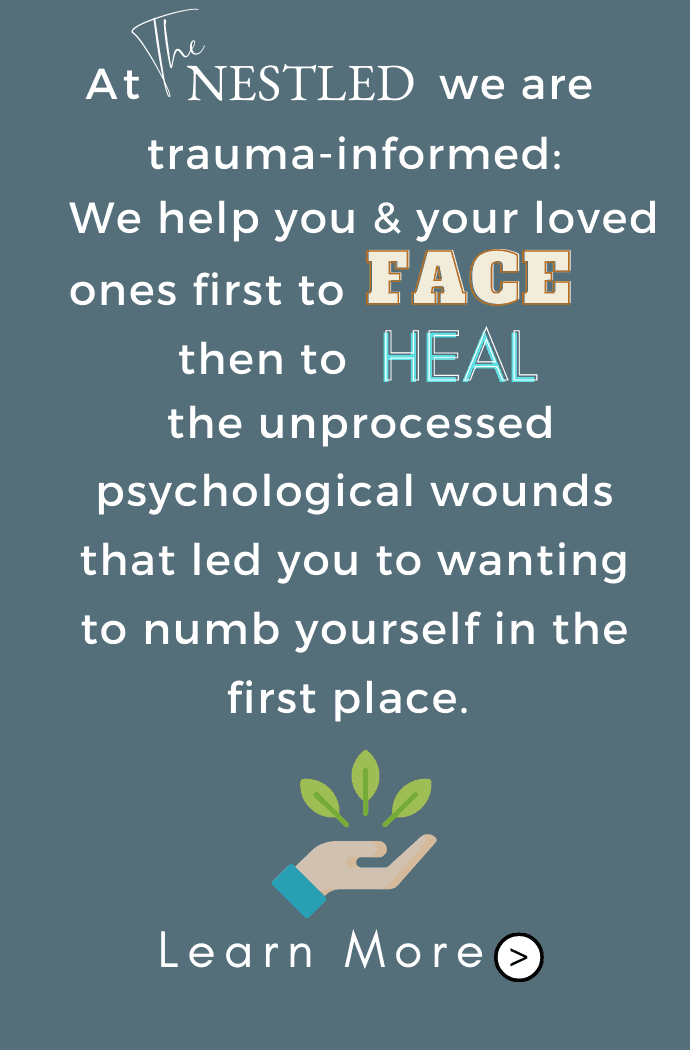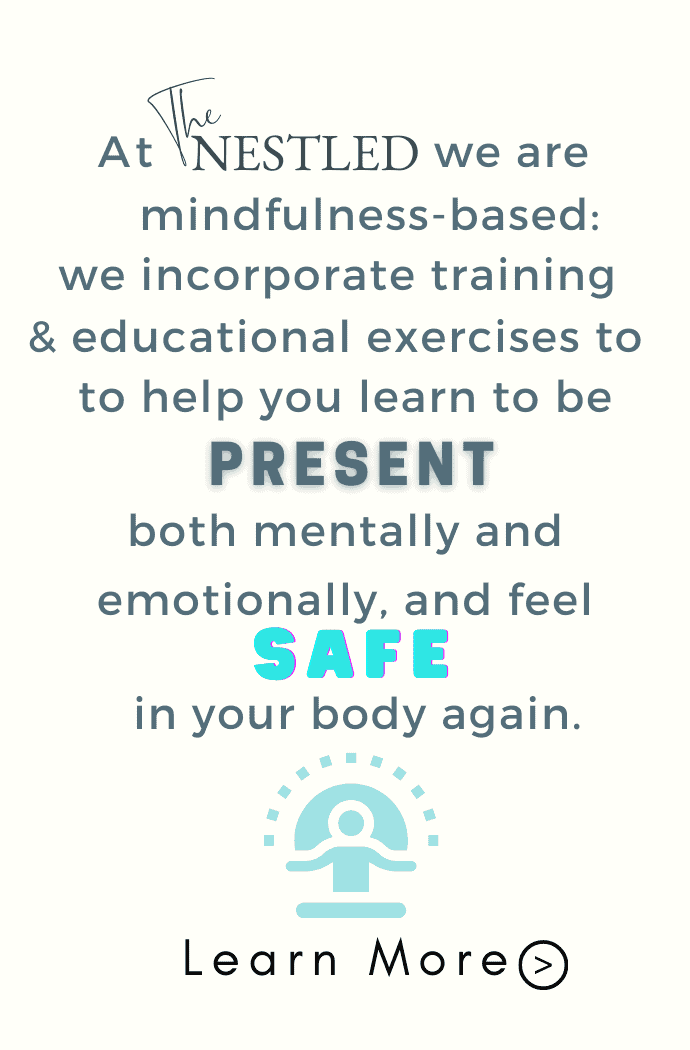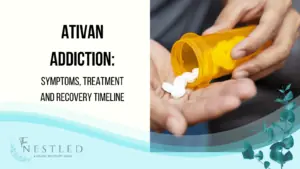Drug addiction remains a staggering challenge globally, with the National Institute on Drug Abuse estimating that substance abuse costs the United States over $600 billion annually. This crisis not only impacts economies but, more importantly, it profoundly affects the lives of individuals and their loved ones.
Here are ten ways to help a drug addict, offering fresh perspectives and practical strategies. In combining conventional methods and providing new avenues for support and recovery, you can make a significant difference in the life of someone struggling with addiction.
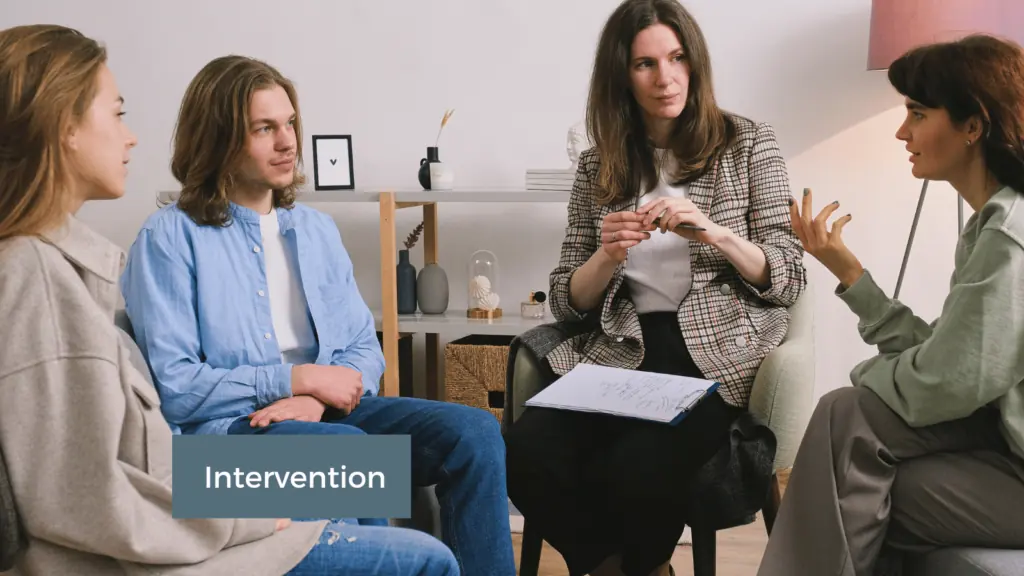
1. Organizing a Professional Intervention
Intervention can be a powerful and effective approach to helping someone struggling with drug addiction. An intervention involves gathering friends, family, and a trained interventionist to confront the addict in a structured and supportive environment. This process allows loved ones to express their concerns and the impact of the addict’s behavior in a non-confrontational manner. The key is to communicate love and support while presenting a united front regarding the need for treatment.
The interventionist plays a crucial role, guiding the conversation to prevent escalation and ensuring that the addict feels cared for rather than attacked. The ultimate goal of the intervention is to motivate the individual to seek help immediately, and having a plan for immediate treatment is crucial.
Whether it’s having a rehab facility selected or a therapist ready for consultation, immediate action is vital. An organized professional intervention can be the turning point, leading an addict toward recovery and showing them that they have a support system ready to help them through it.
2. Enrolling in Family Therapy: Strengthening Support Systems
Family therapy is an essential tool in building a strong support system for someone struggling with drug addiction. This approach recognizes the impact addiction has not only on the individual but on the entire family. Family therapy offers a safe and constructive space where family members can openly discuss their experiences, emotions, and concerns related to the addiction, facilitating healing and resolution of conflicts that may have been intensified by the substance abuse.
Through these therapy sessions, families gain insights into the dynamics of addiction, learning how certain behaviors may enable the addict and how to effectively support their loved one’s recovery. Therapists guide families in setting appropriate boundaries, improving communication, and understanding the complexities of the recovery process.
Additionally, family therapy can address deep-rooted issues within the family structure, contributing to a healthier, more supportive home environment vital for the individual’s long-term recovery.
3. Finding the Right Rehab Facility: Key Factors to Consider
Finding the right rehab facility is a critical step in helping a drug addict on their path to recovery. The choice of a rehab facility can significantly impact the effectiveness of treatment and the individual’s overall well-being. Here are key factors to consider when evaluating rehab options:
- Treatment Approach: Research the facility’s treatment approach and philosophy. Some may emphasize holistic wellness, while others focus on evidence-based therapies. Choose one that aligns with the individual’s needs and values.
- Accreditation: Ensure the facility is accredited and licensed by relevant authorities. Accreditation signifies adherence to quality standards and ethical practices.
- Specialized Programs: Check if the facility offers specialized programs tailored to the individual’s specific addiction, mental health issues, or dual diagnosis.
- Qualified Staff: Verify the qualifications and experience of the treatment team, including therapists, counselors, and medical professionals.
- Location: Consider the facility’s location. Some individuals prefer a serene, secluded environment, while others may benefit from a facility close to home for family support.
- Cost and Insurance: Understand the cost of treatment and whether the facility accepts insurance or offers financing options.
- Treatment Duration: Determine the duration of the program, as different facilities may offer varying lengths of stay.
- Aftercare Services: Inquire about aftercare services and support offered post-treatment, as transitioning back to daily life is a crucial phase of recovery.
- Reviews and Testimonials: Read reviews and testimonials from former clients and their families to gauge the facility’s reputation and success rate.
- Dual Diagnosis Treatment: If the individual has co-occurring mental health issues, ensure the facility can address both addiction and mental health effectively.
By carefully evaluating these factors, you can select a rehab facility that provides the best possible environment and support for the individual’s successful recovery.
4. Reach Out to Others in Recovery and Ask Them to be a Sponsor or Mentor
Helping a drug addict find a sponsor or mentor in their journey to recovery is a compassionate and supportive step. Here’s how you can assist them in reaching out to potential sponsors or mentors:
- Facilitate the Introduction: If they identify someone they believe could be a suitable sponsor or mentor, offer to help facilitate the introduction. You can introduce them in person at a meeting or assist in initiating contact through online channels.
- Emphasize Honesty and Openness: Stress the importance of honesty and openness when approaching potential sponsors or mentors. Encourage them to be candid about their struggles, goals, and reasons for seeking help.
- Prompt Questions: Encourage them to ask questions when approaching a potential sponsor or mentor. Suggest that they inquire about the person’s recovery journey, availability for support, and their approach to sponsorship or mentoring.
- Highlight Boundaries: Stress the importance of respecting boundaries once they have a sponsor or mentor. Remind them that these individuals are volunteering their time and expertise.
- Emphasize Regular Contact: Encourage them to maintain regular contact with their sponsor or mentor. Remind them to share their progress, challenges, and achievements to foster a successful mentoring relationship.
Supporting a drug addict in finding a sponsor or mentor is a significant step towards their recovery. Your guidance and assistance can make a positive impact on their journey to sobriety and personal growth.
5. Encouraging Participation in Support Groups and Meetings
Here’s a detailed list of steps to encourage a drug addict’s participation in support groups and meetings:
- Provide Comprehensive Information: Start by gathering and sharing detailed information about local support groups, including their names, meeting schedules, locations, and contact details.
- Offer Accompaniment: Take a proactive role by offering to accompany the individual to these support group meetings. Your presence can help ease their anxiety and reluctance, making it easier for them to take the first step towards recovery.
- Highlight the Importance of a Support Network: Emphasize the critical role of a support network throughout their recovery journey. Explain how connecting with others who’ve faced similar challenges can provide a sense of belonging, understanding, and motivation.
- Encourage Active Engagement: Encourage the individual to actively engage with their peers in these support groups. Stress that they don’t have to face their struggles alone and that sharing experiences and support within the group can be immensely beneficial.
- Maintain Ongoing Support: Demonstrate your unwavering commitment to their recovery by offering ongoing encouragement and support.
- Regularly Check In: Periodically check in with the individual, offering words of encouragement, guidance, and a listening ear. Let them know that you’re there to support them throughout their journey to sobriety.
By following these detailed steps, you can effectively assist a drug addict in participating in support groups and meetings, providing them with valuable resources and a strong support system.

6. Establishing Healthy Routines to Replace Addictive Behaviors
Helping a drug addict establish healthy routines to replace addictive behaviors is a crucial aspect of their recovery journey. Here are steps you can take to assist them:
- Assess Their Current Routine: Begin by understanding the individual’s current daily routine and identifying the specific times or triggers that lead to drug use. This assessment will help tailor the new routine to address those triggers effectively.
- Set Clear Goals: Collaborate with the person to set clear and achievable goals for their recovery and the healthy routines they want to establish. These goals should be specific, measurable, and time-bound.
- Create a Structured Daily Schedule: Work together to create a structured daily schedule that includes regular wake-up and bedtime times, meal schedules, exercise routines, and designated times for therapy or counseling sessions. Consistency is key to breaking the cycle of addiction.
- Incorporate Healthy Activities: Encourage them to integrate healthy and enjoyable activities into their daily routine. These can include hobbies, sports, mindfulness practices, or volunteering, which provide positive outlets for stress and boredom.
- Encourage Physical Activity: Physical exercise can be a powerful tool for recovery. Encourage them to engage in regular exercise, even if it’s just a daily walk or simple workouts. Exercise releases endorphins, which can help improve mood and reduce cravings.
- Nutritional Support: Promote a balanced diet by providing information on healthy eating habits and nutritious meal planning. Proper nutrition can aid in physical recovery and overall well-being.
- Mindfulness and Stress Reduction: Teach them mindfulness techniques and stress-reduction strategies, such as meditation, deep breathing exercises, or yoga, to manage triggers and cravings effectively.
- Accountability and Monitoring: Establish a system of accountability, where they regularly track their progress in adhering to the new routine. You can provide support by reviewing their achievements and addressing any setbacks together.
- Celebrate Milestones: Celebrate milestones and successes in their recovery journey. Acknowledge their efforts and achievements, no matter how small, to boost their motivation and self-esteem.
Helping a drug addict establish healthy routines requires patience, consistency, and a supportive approach. By assisting them in building a structured, positive daily routine, you can contribute significantly to their recovery and long-term sobriety.
7. Exploring Animal-Assisted Therapy for Addiction
Animal-Assisted Therapy (AAT) can be a valuable tool in helping drug addicts find accountability and foster positive change. By interacting with specially trained animals like dogs or horses, individuals in recovery can develop essential life skills. Here’s how AAT promotes accountability:
- Building Responsibility: Caring for animals in AAT sessions teaches individuals responsibility and consistency, which can be applied to their own recovery journey.
- Trust and Connection: Forming bonds with animals fosters trust and healthier relationships, helping them understand the importance of accountability in their interactions.
- Emotional Regulation: reduces stress and aids in managing cravings by providing a calming environment, helping individuals cope with challenging emotions.
- Boosting Self-Esteem: Successful care for animals boosts self-esteem, encouraging individuals to see their potential for positive change.
- Shift in Perspective: introduces the idea of accountability to another living being, motivating individuals to stay committed to their recovery, knowing their actions affect their animal companion’s well-being.
- Stress Reduction: creates a safe, supportive space for relaxation and connection, reducing the urge to resort to drugs as a coping mechanism.
8. Engaging in Adventure Therapy: The Therapeutic Power of Outdoor Activities
Engaging in Adventure Therapy harnesses the therapeutic power of outdoor activities to aid individuals struggling with addiction on their path to recovery. This innovative approach provides a transformative experience by incorporating activities like hiking, rock climbing, wilderness expeditions, and team-building exercises into the rehabilitation process. Adventure Therapy offers a unique environment that challenges individuals both physically and mentally, fostering personal growth, self-discovery, and resilience.
The outdoor setting of Adventure Therapy encourages addicts to confront their limitations, develop problem-solving skills, and build a sense of self-efficacy. Through these experiences, participants gain a renewed sense of purpose and self-worth. Additionally, the natural surroundings offer a serene backdrop for introspection and emotional healing. Engaging in these activities not only promotes physical well-being but also helps individuals develop the coping mechanisms necessary to overcome addiction triggers and cravings.
Adventure Therapy can be a powerful complement to traditional addiction treatment, as it empowers individuals to overcome challenges, build confidence, and cultivate the resilience needed for sustained recovery.

9. Art and Music Therapy: Creative Outlets for Emotional Expression
Art and Music Therapy offer drug addicts valuable creative outlets for emotional expression during their recovery. Through these therapeutic methods, individuals can convey their emotions, experiences, and traumas in non-verbal ways. Art and music provide a safe and supportive platform for exploring and articulating complex feelings, which can be challenging to express verbally.
Participating in these creative activities allows individuals to reduce stress, enhance self-awareness, and develop healthier coping mechanisms. Art therapy, for example, may involve painting, drawing, or sculpting, while music therapy can incorporate listening, playing instruments, or songwriting. Both approaches encourage individuals to dive into their emotions, process them, and find constructive ways to manage addiction-related challenges. Ultimately, Art and Music Therapy empower individuals to harness their creativity for emotional healing, making them valuable tools in the recovery journey.
10. Volunteer Work: Building Self-Esteem and Community Connections
Encouraging a drug addict to engage in volunteer work can be a transformative step in their journey toward recovery. Volunteering not only allows individuals to give back to their community but also plays a vital role in building self-esteem and establishing meaningful connections. By dedicating their time and skills to a cause they are passionate about, individuals in recovery can regain a sense of purpose and achievement, which is essential for rebuilding their self-esteem.
Volunteer work also provides a valuable opportunity to forge positive connections within the community. The sense of belonging and support that comes from working alongside like-minded individuals can combat feelings of isolation and loneliness that often accompany addiction. It offers a chance to replace negative social circles with positive and supportive networks. As drug addicts experience the positive impact they can have on others through their volunteer efforts, it reinforces their sense of self-worth and motivates them to stay on the path of sobriety. In this way, volunteering not only benefits the community but also aids in an individual’s personal growth and recovery.
Finding Hope and Healing: Personalized Support for Drug Addiction Recovery at The Nestled Recovery
It’s important to remember that recovery is a deeply personal process, and individuals may respond differently to various forms of support. If you or someone you know is seeking help for drug addiction, consider reaching out to The Nestled Recovery. With our compassionate and experienced team, we offer tailored programs and a supportive community to assist individuals in reclaiming their lives from addiction. Together, we can make a difference and help those in need find the hope and healing they deserve.

